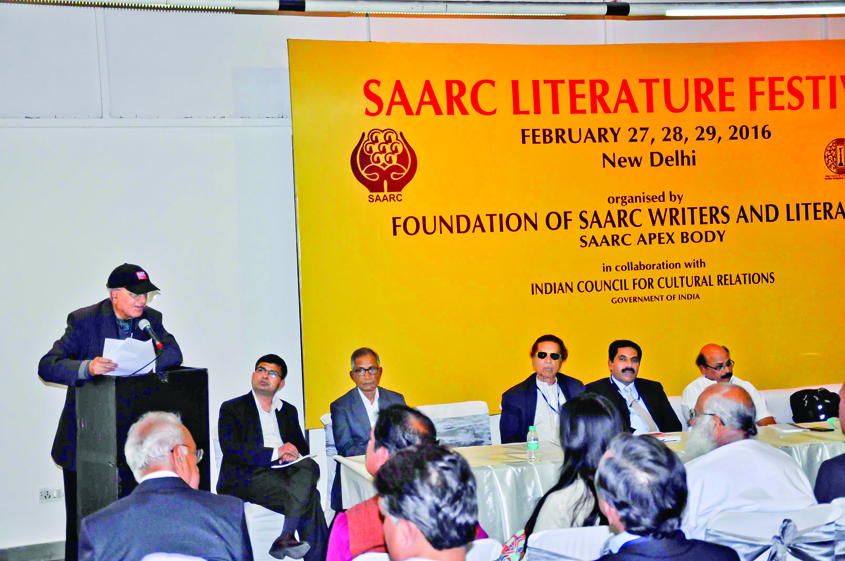Threat to climate change is real and immediate and developing economies like India are most vulnerabkle to it, said President Pranab Mukherjee, while lauding Sikkim’s efforts to be the leader in sustainable development, keeping in harmony “the climate change requirements”.
Pointing out that while India’s energy consumption is 6% of the total global energy consumption, 200 million Indians do not have access to any source of electricity, President Mukherjee said growth is dependent on availability of resources, particularly energy.
He presented the Sustainable Development Leadership Award to Sikkim’s Chief Minister Pawan Kumar Chamling, in recognition of his efforts for conservation of natural resources, after inaugurating the World Sustainable Development Summit (WSDS) 2016, the flagship event of The Energy and Resources Institute (TERI) – themed as ‘Beyond 2015: People, Planet & Progress’.
Congratulating TERI on organising this seminal summit on sustainability, Mr Pranab Mukherjee said, “I congratulate TERI for initiating a conclave of great relevance. TERI has been consistent in its endeavour to find solutions and create new knowledge on issues relating to environment, climate, resources, and sustainable development. Through the Sustainable Development Leadership Award , TERI seeks to provide a unique platform for experts, administrators and policymakers from around the globe who are determined to protect our planet and promote international exchange of knowledge and ideas. He added, “Global action and partnerships are required to achieve sustainable solutions for social progress, inclusive growth and protection of the Earth’s ecosystem. This collaboration of government, private sector, academia and civil society will be a vital source of opportunity, knowledge, innovation, expertise and solution to tackle the twin challenges of development and environment.”
In his address, Dr. Ajay Mathur, Director-General, TERI, said “We have assembled global leaders and thinkers on a single platform to accelerate action towards climate change. The WSDS brings together policy, technology and community practitioners, helping to share experiences, and building new partnerships”.
Mr. Ashok Chawla, Chairman, TERI said, “I am grateful to our distinguished President to provide encouragement and inspiration in the backdrop of the subsequent adoption of SDGs and signing of the Paris Agreement that has led to this partnership across the globe
On this occasion, the Hon’ble Chief Minister of Sikkim, Mr Pawan Kumar Chamling, was felicitated with the prestigious Sustainable Development Leadership Award 2016, for his contributions towards making Sikkim the first fully organic state in India.
Under the leadership of Mr Chamling, the Sikkim government successfully implemented the Sikkim Organic Mission Project. The mission helped make organic seeds and manures widely available, helped farmers market their agricultural produce, and provided the farmers with advanced training in organic farming.
Sharing his view on receiving the award,MrChamling said “I am deeply touched and humbled by the Sustainable Development Leadership Award bestowed on me. This award is a validation of our efforts towards protection and conversation of nature. It is a recognition of our vision of sustainable development, which we have pursued with our programmes and policies since the last 22 years, making it a priority for our government to ensure that development and environmental protection go hand in hand. Today, Sikkim is a frontrunner and a torchbearer in many spheres. I thank the people of Sikkim for their continued support and dedicate this award to them.”
The Summit is also an attempt to initiate discussions on methodologies to be adopted in order to envisage a plan to realise the Goals beyond 2015. The idea is to create a common platform for countries to identify opportunities for consensus and collaboration to balance the realities of ecosystem preservation with aspirations for a holistic economic development.

